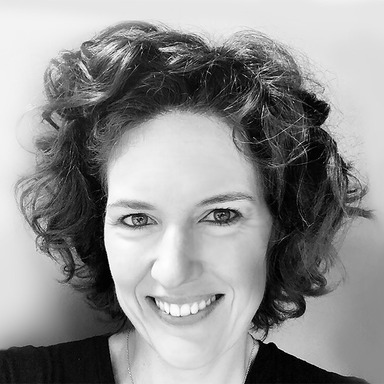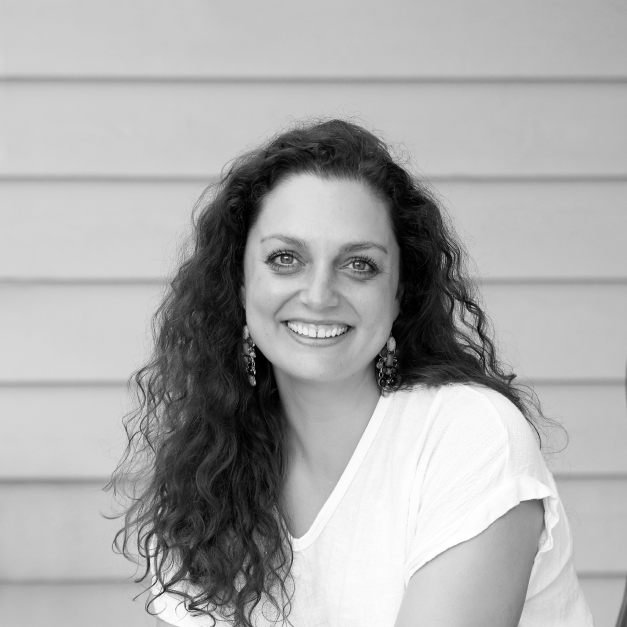
ASKING FOR A FRIEND
Will I be judged negatively for a cv that shows a lot of roles over a short period of time?
ASKING FOR A FRIEND - QUESTION
If your CV reads like a creative agency tour guide, you're not alone in wondering whether all those job changes will count against you. Andy Wright, founder of Never Not Creative and CEO of Streamtime, Maria Devereux, Executive Creative Director at Accenture Song, and Katie Feder, registered psychotherapist, tackle this common career anxiety with refreshing honesty. Their insights reveal why the creative industry is actually more understanding of frequent job changes than you might expect, and how your varied experience can be a genuine asset rather than a liability. The discussion covers everything from why creatives naturally seek fresh perspectives to the psychological impact of how you frame your own career story.
Will I Be Judged Negatively for Changing Jobs Often?
If you've hopped between agencies more than a kangaroo on espresso, you're probably wondering whether all those job changes are going to come back to haunt you. It's a fair worry, especially in an industry where some people seem to plant roots and stay put for decades. But before you start crafting elaborate explanations for your CV, take a breath. The creative industry might be more forgiving of job changes than you think.
The question of whether frequent job changes will be judged negatively is one that keeps many creatives awake at night, particularly when they're preparing for interviews or considering their next move. It's a legitimate concern that deserves an honest, nuanced answer from people who've been on both sides of the hiring table.
This question was answered by Andy Wright, Host and founder of Never Not Creative, CEO of Streamtime, with extensive experience in creative leadership and hiring; Maria Devereux, Executive Creative Director at Accenture Song in North America, with years of experience interviewing and hiring creative talent; and Katie Feder, a registered psychotherapist working in clinical practice, specialising in emotional health and wellbeing in professional contexts.
The Creative Industry Is Different
Here's some reassuring news: the creative industry tends to be more understanding about job changes than other sectors. As Maria puts it: "I wouldn't personally, I wouldn't judge, judge people for having changed jobs often. I would be interested to hear what their journey has been."
This curiosity rather than judgement stems from understanding the creative personality. Maria explains: "We aren't really the type of personality, often we aren't the type of personalities to sit in the same job for 20, 30 years. Because we're restless and we're always wanting fresh perspectives and new inspiration."
In fact, those varied experiences can be a genuine asset. "As a creative, the more life experience you have, the more you bring to the table every day creatively," Maria notes. "So it can be a really beautiful thing." Rather than seeing job changes as instability, many creative leaders recognise them as evidence of curiosity, growth, and diverse experience.
The Power of Good Reasons
While the creative industry is generally more accepting of job changes, Andy emphasises that being able to articulate your reasons is crucial: "The only thing that is stopping someone making a sort of negative decision around that is thinking that, oh, you just can't sit still and, you know, 6 months later, all the time and investment I've put into you is gone."
The key is having "really good reasons" and being able to "articulate them." When you can clearly explain why you made each move (whether it was for growth, new challenges, better opportunities, or even just a toxic situation you needed to escape), it transforms the narrative from "flighty job hopper" to "thoughtful career strategist."
Andy admits he finds these stories intriguing rather than concerning: "I'd be with you, I think I'd be quite intrigued." This curiosity about your journey can actually work in your favour, giving you an opportunity to showcase your diverse experience and thoughtful approach to career development.
Your Inner Narrative Matters
Katie brings an important psychological perspective to this discussion, highlighting how our own mindset affects how we present ourselves. She describes two possible responses to the question "tell me why you've changed jobs so much": "1, let's say from the loving, confident case, you might be like, oh, he's really interested in me. He really wants to know about my experience."
Contrast this with the critical inner voice: "The critic might go, you see, there you go. He's automatically made a judgment on you, and he's now just asked that question to trip you up so that you could fail." Katie points out that "our own narrative, the stories we tell ourselves, become our reality."
This insight is crucial because if you go into an interview convinced that your job changes are a weakness, you'll likely present them defensively. But if you frame them as evidence of your growth, adaptability, and diverse experience, that confidence will come through in how you tell your story.
The Hiring Reality Check
Andy offers a refreshing perspective on modern hiring practices: "I look less and less at CVs and portfolios and stuff now, and you know, if something sparks my interest in what they said as they were coming in the door, then that's the thing that sort of will determine whether I'm going to speak to you for longer or not. Because we all look kind of similar on paper."
This suggests that your personality, enthusiasm, and the way you present yourself matter far more than the number of jobs on your CV. It's about the human connection and whether you can engage someone's interest, not about ticking boxes on a traditional career progression chart.
Maria reinforces this with her hiring philosophy: "As someone who's interviewed a lot of people over the last few years I always want the best for the person sitting in front of me, right? Like, you know, like I'm looking for the best in them. I want to get to know them. I'm not looking for fault. And I'm not looking for them to make mistakes."
Reframing Your Story
The key to addressing concerns about frequent job changes is reframing your narrative. Instead of seeing your varied experience as a liability, recognise it as evidence of your adaptability, curiosity, and breadth of knowledge. Each role has taught you something different, exposed you to new ways of working, and added to your creative toolkit.
When discussing your career journey, focus on what you learned, how you grew, and what you contributed to each role. Show how each move was a deliberate step in your professional development, even if some decisions were reactive to difficult situations. Honesty about challenges you've faced can actually demonstrate resilience and self-awareness.
Remember Katie's insight about self-awareness leading to conscious choice: "Once you have sight of that, then you have self-awareness. And once you have self-awareness, then you have conscious choice." Approach your career story with this level of self-awareness, and you'll be able to present it confidently and authentically.
Moving Forward With Confidence
The truth is, frequent job changes are increasingly common across all industries, and the creative sector has always been more fluid than most. What matters isn't the number of jobs you've had, but how you frame your experience and what you've learned along the way.
Your varied background isn't a weakness to apologise for; it's a strength to celebrate. You've seen different agency cultures, worked with diverse clients, and adapted to various creative challenges. That breadth of experience makes you more valuable, not less. Trust in your journey, be ready to tell your story with confidence, and remember that the right employer will see your diverse experience as exactly what they're looking for.
our guests
Industry Leader

Maria Devereux
Accenture Song
Mental Health Expert

Katie Feder
Host

